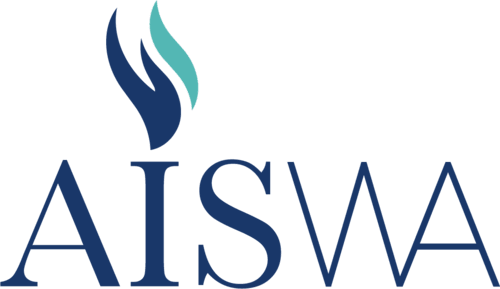About Studio Schools of Australia Ltd
Studio Schools of Australia (SSA) was established in 2019 to bring about a “system” level change in secondary education for Indigenous students in remote communities across northern Australia. This “system level” reform is based on well-established evidence of what works for Indigenous students, their families and communities, in a scalable, proven work-related model of education introduced at the Yiramalay / Wesley Studio School in the Kimberley, Western Australia, in 2010.
SSA’s mission is to enable Indigenous students to lead their own advancement and to take a valuable and meaningful place in their own communities and within Australia.
SSA is committed to being a child safe environment, and we actively promote the safety and wellbeing of all students. All staff are committed to protecting students from abuse or harm in the school environment.
Overview
Join an innovative and culturally rich residential school system located on Country across the remote north of Australia. In partnership with the Indigenous Education and Research Centre (IERC), this unique initiative is co-designed and co-led with local communities to foster Indigenous success, with a strong emphasis on local culture and language.
The school’s mission is to empower Indigenous students to shape a future grounded in pride, belonging, and achievement. The learning environment is practical and hands-on, guided by a holistic educational philosophy that integrates academic, cultural, personal, and community-focused learning. Learning is embedded throughout the day, with a strong focus on health, wellbeing, and meaningful engagement.
The school’s framework, known as the Four Circles of Learning, provides a holistic approach to education:
-
Indigenous Language and Culture is the mother circle, grounding students in their cultural identity and building self-worth and confidence.
-
Academic Learning develops intellectual capabilities and promotes independent learning for future success.
-
Personal and Social Learning supports students in building a positive self-concept and envisioning themselves as strong Indigenous leaders.
-
Enterprise Learning fosters initiative, responsibility, and community-mindedness, preparing students to contribute meaningfully to their local communities.
Teaching here is grounded in a Two-Way learning model, where teachers are also learners—learning from students, the land, Elders, and one another. Learning on Country is central to the program, connecting students with traditional knowledge and practices. Through guided, experiential learning with teachers, mentors, and local Elders, students explore their environment, history, and culture, while building critical skills in literacy, numeracy, communication, and vocational pathways.
Operational Responsibilities
-
Design and deliver lessons that encourage inquiry and incorporate on-country, experiential, and hands-on learning across diverse educational settings
-
Use curriculum frameworks to plan developmentally appropriate programs that support the holistic development of each student
-
Integrate Aboriginal languages into classroom practice where possible and culturally appropriate
-
Demonstrate flexibility and openness to teach across multiple subject areas
-
Deliver targeted instruction within a literacy intervention program to support students’ language development
-
Work closely with students to implement and monitor progress on Individual Learning Plans (ILPs)
-
Effectively use technology to enhance and report teaching, learning, and student engagement
-
Actively participate in the school’s co-curricular program, including afternoon, evening, and weekend activities
-
Use assessment data to inform teaching practice and drive continuous improvement in student learning outcomes
-
Contribute to the development, evaluation, and refinement of curriculum and teaching resources
-
Provide appropriate care and discretion when supporting students facing personal, social, or behavioural challenges
-
Liaise with relevant colleagues regarding student wellbeing and pastoral care matters
-
Engage fully in ongoing professional learning, reflective practice, and performance review processes
Skills and Capabilities
1. Relevant Qualifications
-
A bachelor’s degree (or equivalent), with current registration or eligibility for registration with the Teacher Registration Board of Western Australia (TRBWA).
2. Cultural Awareness and Commitment to Diversity
-
A genuine interest in Aboriginal culture, traditions, and issues, with a strong commitment to inclusion and working respectfully with Aboriginal students and communities.
3. Student-Centred Teaching Practice
-
Demonstrated experience delivering engaging curriculum and differentiated learning to support the diverse needs of students, including EAL/D and those with learning challenges.
4. Commitment to Student Success and Wellbeing
-
A passion for helping young people thrive, with the ability to build trusting, respectful relationships and promote personal growth and resilience.
5. Assessment and Reporting
-
Strong understanding of effective student assessment practices and the ability to provide accurate, meaningful reporting to support learning outcomes.
6. Communication and Interpersonal Skills
-
Excellent interpersonal, communication, and collaboration skills, with the ability to work effectively as part of a team in a dynamic school environment.
7. Technology Proficiency
-
Confident use of technology to support learning, communication, and school systems.
8. Professionalism and Personal Resilience
-
Strong organisational skills, adaptability, and the capacity to manage workload and maintain personal wellbeing in a remote or high demand setting.
Desirable
-
Experience teaching Aboriginal students and working in remote or culturally diverse settings
-
Familiarity with positive education and/or trauma-informed practices
-
Experience teaching within TAFE, VCAL, or similar vocational learning programs
-
Possession of a manual driver’s licence and experience with 4WD vehicles, or a willingness to undertake accredited training
-
Current First Aid certification, or a willingness to obtain it through an accredited course
Employment
Due to Australian immigration regulations, applicants must have Australian work rights. We especially welcome applications from Aboriginal and Torres Strait Islander people and people from diverse cultural backgrounds.
Applicants will be required to provide a current WA Working with Children Check (WWCC) and National Police Check (NPC).
All appointments at Studio Schools of Australia are subject to child protection legislation and pre-employment screening.
Commencement date is immediate start.
